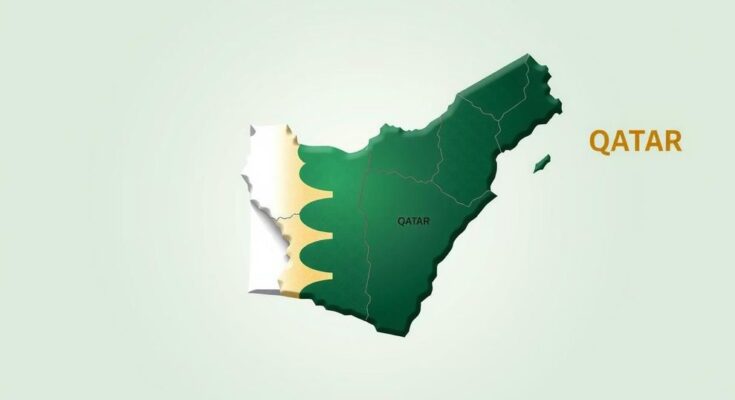Qatar, a small but wealthy nation, exerts significant influence in the Middle East through substantial investments and strategic political involvement. Allegations of their support for terrorism, particularly through Hamas, have surfaced alongside controversies like ‘Qatargate.’ The U.S. has proposed a $2 billion arms sale to Qatar, raising concerns about the implications of supporting a nation with a dual role in diplomacy and terrorism.
Qatar, despite being a small nation with a population of approximately three million, wields significant influence in the Middle East due to its status as the world’s largest per capita producer of oil and natural gas. Its substantial wealth allows it to exert influence that often surpasses that of larger countries in the region.
The wealth of Qatar is utilized strategically. The nation is known to sponsor Islamic terror organizations, most notably Hamas, and hosts several high-ranking officials of this group. Furthermore, Qatar owns Al Jazeera, a prominent news network that plays a crucial role in shaping public perception and opinion across the region.
Over the years, Qatar has invested over $11 billion in American universities, funding various academic initiatives. However, some of these educational endeavors serve ulterior motives, such as promoting antisemitism, undermining the legitimacy of Israel, and inciting unrest on college campuses.
The reach of Qatar extends into Israel’s political realm, even involving Prime Minister Benjamin Netanyahu’s office. Allegations surfaced regarding a junior spokesperson for Netanyahu being compensated for providing public relations services to Qatar, alongside accusations against two consultants who supposedly worked for both Netanyahu and Qatar.
The scandal, dubbed “Qatargate,” revolves around Eli Feldstein, Netanyahu’s military affairs spokesman. After a brief tenure as a contractor, Feldstein faced issues with security clearance and continued in his contractor role while being involved with Qatar to enhance its public image as a mediator concerning negotiations with Hamas.
In November 2024, Feldstein was arrested and charged with leaking classified material provided by an IDF intelligence officer, raising further concerns about Qatar’s influence. The State Department’s recent approval of a nearly $2 billion sale of eight unmanned drones to Qatar, a nation known for supporting terrorism, has been met with skepticism.
While some argue that Qatar’s role as a mediator between Israel and Hamas is vital, critics highlight the contradictory nature of its actions, implicating the nation in the promotion of both peace and terrorism. The notion of the United States supplying advanced military technology to Qatar raises significant concerns regarding trust and accountability.
In conclusion, Qatar’s significant economic resources and strategic investments allow it to exert considerable influence not only in the Middle East but also internationally. However, its sponsorship of terrorism and questionable political dealings raise serious concerns about the implications of U.S. military support for the nation. There is a pressing need for scrutiny in dealings with Qatar, especially when its actions contradict its proclaimed role in peacemaking.
Original Source: www.washingtonjewishweek.com




